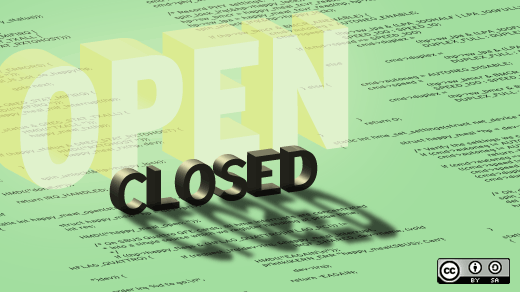This article was first published at my personal blog, under a CC BY-SA license. Feel free to take it, adapt it, and share it.
The dominance of Facebook is a democratic problem. Our only hope is to use the same tactic the internet used to win against the networks of the time: Open up for collaboration between networks. This is done through federation. Here is how and why it will work, and how you can help.
At a recent conference in Norway, Clay Shirky was asked what he thinks of the domination of Facebook. His answer is discouraging. You can see it below, but in short he says that Facebook might now be so big that it’s impossible to challenge its dominance.
Facebook has 800 million active users around the world. In some countries its grasp on the population is staggering. In the US, 41.6% of the population has an account. In Norway, 73% of the population uses Facebook every month, and young people spend 40% of their online time there. You can see why Clay has a negative outlook.
So, is the fight lost? Will Facebook rule for all foreseeable future?
Yes. It might do just that, if we don't have a radical shift in our thinking. We need to start thinking like the internet. We can not follow the old pattern of one company replacing another (6 degrees -> Friendster -> Myspace -> Facebook) any more. Here I think Clay might be right.
What can replace Facebook then is not another social network, where all your friends have to agree to join the same new place, but something more akin to the internet itself: A network of social networks.
HOW IS THIS DONE?
Through decentralization with federation. Federation means that two people with profiles on two different social networks can do all the things together that they would normally need to be on the same network to do: Follow, @reply/comment, self organize trough hashtags/groups, etc. Social networks using federation is called distributed social networks.
Take a look at this fantastic walk-through explaining what distributed/federated social networks are, how they work, and more, presented as an old school point-and-click game.
A system for federation, OStatus, is being built by StatusNet by bundling many already highly regarded Open protocols. This is in use today. If you have a microblog on Identi.ca or any server with the StatusNet software you can follow any Tumblr and Friendika account from there. In addition to any other account on any other StatusNet server. Google Buzz and Cliqset was also a part of this.
I install it on my server, you use Brainbird, our mutual friend use Identi.ca, but we can all communicate and collaborate just as easily as if we were all on Twitter.
The beautiful thing with this federation is that no deals have to be made, no contracts signed. One player doesn't even have to know that the others exist. It is organic like the kind of spontaneous collaboration that happens online when people independent of one another starts labeling their photos with the same tag, which Clay himself talks about in his book Here comes everybody. Anyone is free to implement the OStatus protocols and get federated.
WHY IS IT NEEDED?
There will always be people who create new social networks to cater to a specific social or technical niche. But, as Clay says, these mom-and-pop companies stands no chance against the Facebook mall. With its groups and apps, Facebook can encompass the need of any niche, and be the general purpose store at the same time. The Facebook chat is not better than MSN, ICQ or Jabber, but because you can do everything on Facebook, and because of the network effect, it is still taking over.
WHY WILL IT WORK?
Because of the same network effect that keeps everyone locked in to Facebook. Every extra node on a network makes the whole network exponentially more useful for all the existing nodes. Few nodes, that is if none of your friends are there, makes the network close to useless; no matter how innovative the technology or how great the Terms of Service.
Even though most new networks will be able to recruit at least a few people for all kinds of different reasons, they are more likely to lose those users after a while than to recruit more. Few users is, ironically, the main hindrances for getting more users. When new startups begin to see this dilemma, they will hopefully come to the realization that it is suicide to try to go the same route as Facebook and lock their users into a walled garden.
Federation means opening yourself up the scary possibility that those who want to talk to some of your users chooses to do so from another network, instead of joining yours. But it also goes the other way around. Getting one new person (node) to register is hard when you're a small player and all the friends of this potential new user is on Facebook. But by federating your network it gains thousands of new nodes instantly, making your network endlessly more useful for all your users. In addition your users don't have to convince all their friends that they should join your particular network, only that they should join one of the (hopefully soon) thousands of federated networks to choose from.
Every time a new network starts federating, the reward for joining the network of network grows bigger for the next player out, who will enjoy the benefits of the network effect without having to build the user base for it first. This will have a snowball effect.
Why will it work? Because it's the only alternative.
WHY IS IT BETTER FOR EVERYONE?
Facebook is a threat, but not because it is Facebook. If history repeats itself and another network replaces Facebook, nothing will be gained. It will grow as large or larger than its predecessor, just like before, and the democratic problem Clay warns about will be just as bad. The public space will be replaced by a commercial space, where public speech is allowed when the company deems it advantageous for them.
But with a federated network of networks the opposite will be the case. Is the network you chose for spreading your message censoring you? If that network is Facebook, there's little to nothing you can do, as thousands of unhappy users, from people expressing sympathy towards the family of Anders Behring Breivik to activists and anti-monarchists in the UK can tell you. If the network is a federated network, you can just move to another federated network, or install one on your own server, and keep all your followers. Of course this also points to challenges we need to face regarding bullying, child porn, and other heinous crimes, but we will be able to find solutions to those problems. Trough free and uncensored discourse and innovation.
We can not have a real democracy if every public meatspace is converted into malls and privately owned parks, where the wish of the owners are the security guards demand, and every public cyberspace is converted into Facebook, with one ToS to rule them all. Our free society is dependent on the freedom to debate any issue and pursue any knowledge, no matter how damaging it might be to the ad revenues. We live in a society, not a corporation. We must keep it that way.
HOW CAN I TRY IT?
There are many ways to try federation today. The most common way is to create an account on Identi.ca, which is based on StatusNet. From there you can follow users on MozillaCa or Brainbird or any of the other StatusNet servers. Or you can install StatusNet on your own server. Other networks who are federating includes Mediagoblin and Friendika. Diaspora is federated among itself. That is you can communicate between different Diaspora installations. But it is unfortunately not connected to the wider network of networks yet. Others working on federation includes buddycloud, Appleseed, Ampify, OpenPhoto and many, many more.
HOW CAN I CONTRIBUTE?
Spread the word and talk about why this is important. Tell your favorite tiny social network about the advantages of adopting federation. Contribute code to the OStatus or Unhosted effort. Read up on the FreedomBox and donate either your money or your time as a coder or translator. And maybe most importantly: Be active on those social networks that already are federated.
Anyone who's read Jonathan Zittrains excellent book The Future of the Internet – And How to Stop It, or studied the history of the internet will recognize that we've been here before. AOL, CompuServe, and others operated privately controlled networks with a great network effect making it impossible for newcomers to compete. They where just as invincible as Facebook. Then came the internet.
OPEN UP OR DIE
My prediction is this: Clay is right. We will not see another turn of the wheel with another social network dethroning Facebook. But at some point the federated network of networks, with it's thousands of laughably small social networks which Facebook can safely ignore on their own, will grow into an ultimatum: Open up and join something bigger than yourself, like AOL joined the internet, or die.
This might seem like the end, but if we start thinking like the internet it is only the beginning. That is, unless the Protect-IP Act or SOPA is passed and breaks the internet. Please sign the petition against Protect-IP over at Demand Progress and learn more about SOPA and sign a petition against it here!
What do you think? Is this the solution? Is this a problem that needs a solution at all? Am I too optimistic or too pessimistic? And do you know of any other ways to be a part of the federation revolution? Please tell me in the comments below!
PS: Please see this Fantastic talk about Why Political Liberty Depends on Software Freedom More Than Ever, by Eben Moglen, founder of The FreedomBox Foundation.
Connect with me: Over OStatus (on identi.ca), or on Diaspora. I am, perhaps ironically, also on Twitter.
Also on Shareable
- Facebook Poses a Far Greater Threat to the Web than Apple
- The Next Net
- 10 Projects to Liberate the Web
- The Evolution Will Be Socialized
- A New Social Network? Welcome to The Diaspora









